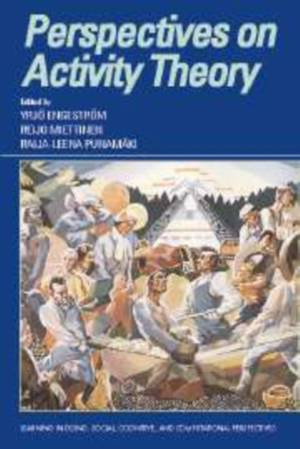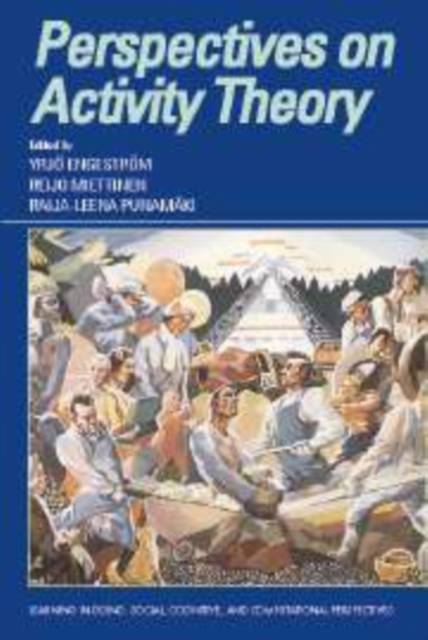
- Afhalen na 1 uur in een winkel met voorraad
- Gratis thuislevering in België vanaf € 30
- Ruim aanbod met 7 miljoen producten
- Afhalen na 1 uur in een winkel met voorraad
- Gratis thuislevering in België vanaf € 30
- Ruim aanbod met 7 miljoen producten
Zoeken
Perspectives on Activity Theory
€ 223,45
+ 446 punten
Omschrijving
Activity theory is an interdisciplinary approach to human sciences that originates in the cultural-historical psychology school of thought, intitiated by Vygotsky, Leont'ev and Luria. Activity theory takes the object-oriented, artifact-mediated collective activity system as its unit of analysis, thus bridging the gulf between the individual subject and the societal structure. This volume is the first comprehensive presentation of contemporary work in activity theory, with twenty-six original chapters by authors from ten countries. The first part of the book discusses central theoretical issues, and the second part is devoted to the acquisition and development of language. Part Three contains chapters on play, learning, and education, and Part Four addresses the meaning of new technology and the development of work activities. The final section covers issues of therapy and addiction.
Specificaties
Betrokkenen
- Uitgeverij:
Inhoud
- Aantal bladzijden:
- 478
- Taal:
- Engels
- Reeks:
Eigenschappen
- Productcode (EAN):
- 9780521431279
- Verschijningsdatum:
- 13/01/1999
- Uitvoering:
- Hardcover
- Formaat:
- Genaaid
- Afmetingen:
- 152 mm x 229 mm
- Gewicht:
- 866 g

Alleen bij Standaard Boekhandel
+ 446 punten op je klantenkaart van Standaard Boekhandel
Beoordelingen
We publiceren alleen reviews die voldoen aan de voorwaarden voor reviews. Bekijk onze voorwaarden voor reviews.










